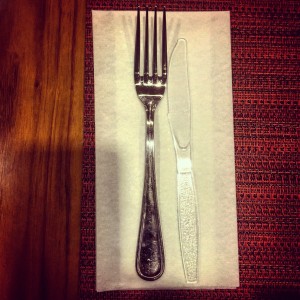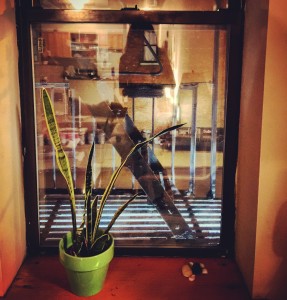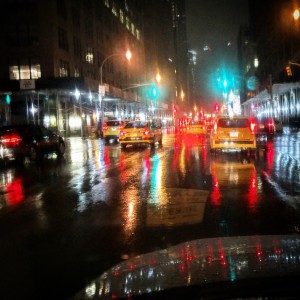Writing: The Toolbox IX
“Desperation is better than inspiration”
I cannot write this blog. I have too many deadlines. Yet I will. I always do. I deliver. That’s my professional obligation. There is no can’t in this profession, there’s only must. As long as I’m still alive at the end of it all, the deadline is exactly what I need to get things done.
I continue my series writing about the collected tools of the craft, based on my long-standing experience of writing screenplays and books.
25. Deadlines
This week’s deadlines are so pressing, I don’t know if I will survive them. That’s how I always feel. That’s what I always say. But my friends, and even my kids, don’t want to hear it anymore. They don’t care. I’m the boy who cried “deadline” too many times. “You’ll manage, you always do,” still doesn’t help to quell the panic. Empirical evidence only goes so far to reassure the racing heart. The piece doesn’t write itself after all. The sweat and terror that go into the meeting of several deadlines at the same time, are painful no matter how many times you have survived them in the past. And there’s always that fear, what if this time I don’t make it? Then what? I imagine myself treading water in a devouring vortex and I just let go, stop trying. All that’s left is to drown. But I keep swimming. I must.
The worst deadline I ever had to tackle was when I had months to rewrite a script and due to the my-bad-wherever-does-the-time-go-ether of life, I found myself with only three days before the deadline’s due date and I hadn’t even started. The director called on Thursday and asked if I would submit the script on time. It was due on Sunday. I paused and said, “…Yes.”
I rewrote that script—a complicated total overhaul—in five days. I worked night and day. I started writing with my morning tea by 8am. My shoulders hurt by 5pm from fatigue. I pushed on until 10pm until I passed out. The next morning I rewrote what I had done the day before, editing and polishing until it started to work, to give myself a running start for the day. Feeling things getting better through the rewriting motivated me and reduced the pure panic fueling my adrenals better than coffee. The rewrite required a new voice for the main character. Things had not been working. I was desperate. I began to imagine a friend of mine, an actor with a strong personality, speaking the lines. Suddenly the character began to speak on her own. The script came to life. I was in that zone, in that haze of immersion. Some writers refer to it as channeling. I know it’s how I work best.
Papers can’t wait for excuses. Productions have millions riding on schedules. Books have set publishing dates. An army of editors, producers, actors, typesetters, lit agents, studio executives, publishers, are all waiting for your product. It’s always life and death. It’s not called a lifeline after all.
I handed that script in on the following Tuesday, only two days late. It was the best draft I had written by far, and the entire production team was excited. Everyone could “smell the awards” coming down the line. No one ever knew what it took to get it there.
In the end, when I read it over myself, I had that sense, the sense I always get when writing in this kind of immersive state, that I have no idea where all those words came from. Those characters started talking on their own. The script did almost write itself.
I work well under pressure. That’s why, for me, desperation is better than inspiration.
26. Dramatic Changes and Writing by Degrees
Sometimes in young writers I see the tendency to “write by degrees.” This means to describe, create, or construct a scene or develop an idea within a narrow and tepid time frame or quantity or amounts. The simplest of these would be an example in a sentence, “Some people linger by the door.” Certainly in a screenplay the vague word “some” is a death knell. A crowd. A horde. A group. A smattering. But not “some.” No one can imagine “some.” Never use it.
Stories live by wide contrasts, strong emotions, big conflict, heavy tension. Novels can sometimes move within the narrowest of degrees, as the primary content can reside in the smallest subtleties in between the action. But in screenplays, and in stories that are moved by wide dramatic changes, the narrative can’t just go from a little bit of this to a little bit of that. A character in a screenplay who starts off deeply angry in the beginning has to end up at peace in the end. He can’t start off slightly angry and end up a little less angry. The change needs to be total. The wider the path, the more satisfying the change.
In Glory Road (a film I wrote for Jerry Bruckheimer and Disney), the coach who wanted nothing more than to win, in the end voluntarily gives up half his team because he learns there are more important things than winning. At the beginning of his life, our founding father, George Washington, wanted nothing more than to be an aristocrat. Later, the very British aristocrats he admired rejected him from their military, and he ended up kicking their asses and drumming them out of America. And when the people wanted to make him king for his victory, he refused the crown and gave the power to the people. These are satisfying stories, because they entail big changes and dramatic character reversals. When writing, don’t just write within narrow degrees. Embrace change. Don’t be afraid to take your characters to wide dramatic opposites in their journeys. It usually makes for the most satisfying story.
27. Use It or Lose It
When I first started writing screenplays, I heard this phrase from an AFI screenwriting student, and I forgot it. “Use it or lose it.” If anything is not essential to your story, whatever you may be writing, then you must remove it, no matter how attached you may be. If two children are walking along a country road, and there’s a scarecrow in the distance wearing a Dodgers sweatshirt, then there better be something significant in the Dodgers shirt, or else it needs to go. If a character is wearing a bright green shirt with an orange jacket and teal corduroy pants, that get-up better mean he’s color blind, a nerd, or deeply eccentric. But if those colors don’t contribute something to the story, it shouldn’t be described. If two gorillas are eating hot dogs in the background of a scene, those gorillas and hot dogs better come back again later with irony or significance. Everything must be organic, inherent, symbolic to the theme, serving the content, setting up whatever comes next. Extraneous details and descriptions are misleading, confusing, and bog down the material. In good screenplays not a word is wasted, not a description is superfluous to the action, the theme, and the plot.
In Collateral by Michael Mann, the introduction of Tom Cruise’s character is detailed.
VINCENT. He walks towards us… an arriving passenger. Suit. Shirt. No tie. Sunglasses and expensive briefcase say “confident executive traveler.” The suit’s custom-made but not domestic. His hair and shades are current, but it would be difficult to describe his identifying specifics…grey suit, white shirt, medium height. And that’s the idea…
This description sets up a man trying to blend in, masking the fact that he is actually a cold-blooded killer. His grey and whiteness also signify a coldness not only in color, but in character.
In Taxi Driver by Martin Scorcese, the character description is specific.
Travis is now drifting in and out of the New York City night life, a dark shadow among darker shadows. Not noticed, no reason to be noticed, Travis is one with his surroundings. He wears rider jeans, cowboy boots, a plaid western shirt and a worn beige Army jacket with a patch reading, “King Kong Company 1968-70”.
This description sets up a man who, though he appears nondescript on the surface, blending into the city’s shadows, later is revealed to be a renegade, a rebel, a traumatized and disillusioned veteran, a man on the edge and on the outside, who is eventually capable of shooting a gang of pimps.
The cowboy boots and the Army jacket mean something. The grey jacket and white shirt without a tie mean something. The scarecrow with the Dodgers shirt might sound vivid, but without significance it becomes a ruse and a weight on the writing.
It’s not just that everything must be organic to the core. If it’s not intrinsic to the story, it also sounds like writing. I don’t like to let the seams show in my work. I like to keep things moving, clean and fluid, and precise, polished and buffed. Too many self-conscious descriptions, too much meaningless detail draws attention to itself and should always be cut. It can’t just be writing for writing’s sake. It can’t just be detail for detail’s sake. Use it or lose it. In writing, every word has meaning.
Previous posts:
https://lunchticket.org/writing-toolbox/
https://lunchticket.org/writing-toolbox-ii/
https://lunchticket.org/writing-the-toolbox-iii/
https://lunchticket.org/writing-the-toolbox-iv/
https://lunchticket.org/writing-the-toolbox-v/
https://lunchticket.org/writing-the-toolbox-vi/
https://lunchticket.org/writing-the-toolbox-vii/
https://lunchticket.org/writing-the-toolbox-viii/
All images courtesy of Bettina Gilois
Bettina Gilois is a Los Angeles based writer whose screen credits include the Bruckheimer film “Glory Road,” for which she was nominated for the Humanitas Prize, as well as “McFarland, USA” starring Kevin Costner, and the HBO movie “Bessie” starring Queen Latifah for which she received an Emmy Nomination for Outstanding Writing. Her book, “Billion Dollar Painter” for Weinstein Books, came out in 2014. She is a special contributor for the Huffington Post in Arts and Culture, and has been a professor of screenwriting at Chapman University, St. John’s College Film Institute in Santa Fe, and now Hofstra University’s Herbert Lawrence School of Communications in NY.











